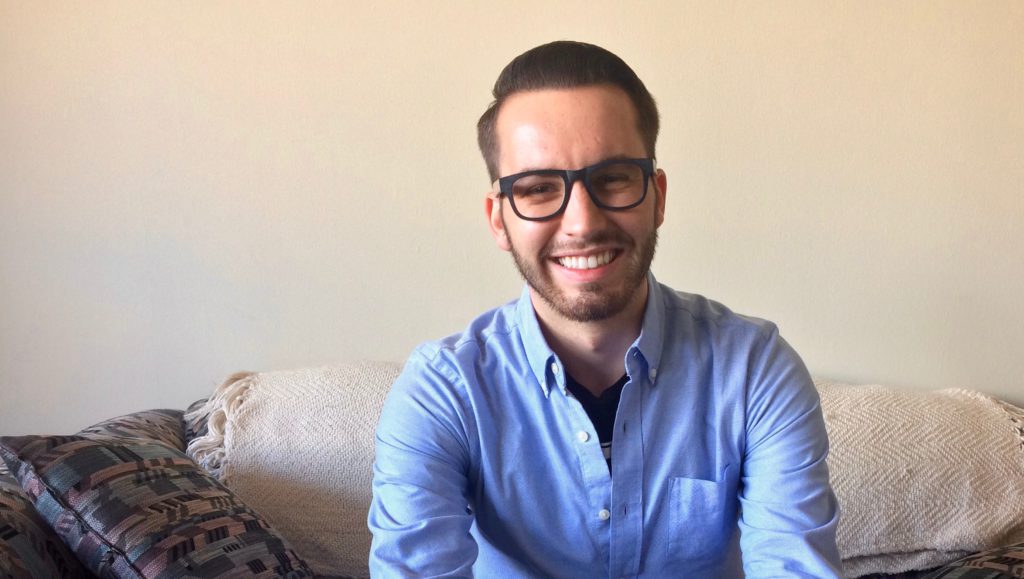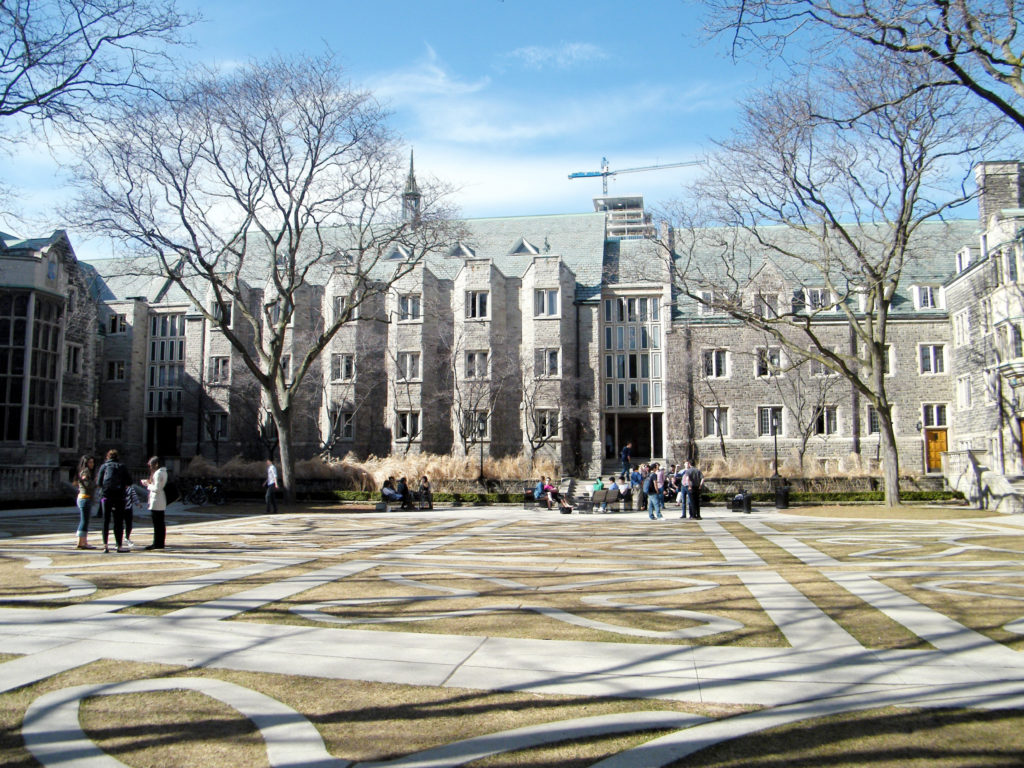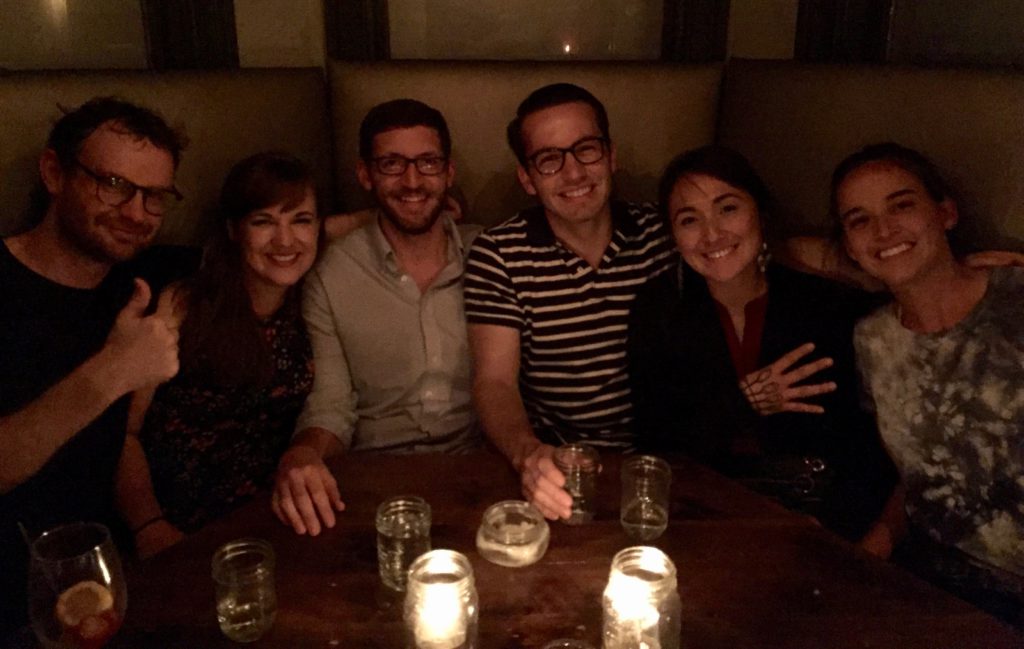
Through the Fulbright U.S. Student Program for Study/Research, U.S. candidates can spend one academic year pursuing a self-designed program of research or study in a participating country outside the U.S. One of these country programs, Fulbright Canada, aims to enhance mutual understanding between the people of Canada and the United States by providing support to outstanding individuals. In particular, Fulbright Canada’s Traditional Fulbright Student Awards grants American graduate students, prospective graduate students, or junior professionals $15,000 towards a program of study or research for one academic year at any college, university, think tank, or government agency in Canada.
Current Fulbright Canada grantee Danny Edgel shares with us his experience applying for numerous graduate fellowships, landing a Fulbright fellowship in Canada, and his current residency at the University of Toronto.
1. What inspired you to apply for to be a Fulbright Canada Student?
My decision to pursue a Fulbright Canada grant had two primary sources. First, I was drawn to the idea of graduate fellowships for international study after reading Bill Clinton’s autobiography, My Life, during my Freshman spring break. The description Bill Clinton provides of his experience as a Rhodes Scholar is compelling (and I’m not alone in the effect it had on me; in an interview with Ezra Klein, Dr. Leana Wen reveals that she decided to pursue a Rhodes after reading Clinton’s autobiography). I originally applied for (and was denied) a Truman Scholarship to attend University College London during my junior year. After losing the Truman I was devastated, but my fellowship advisor made me promise that I would at least consider applying for a Fulbright award the following year.
The second factor was my experience at the Border Policy Research Institute (BPRI), where my work centered on U.S.-Canada policy. Having grown up in a border community, I traveled regularly to British Columbia for recreation that was only available stateside with a three-hour drive. BPRI ignited a deeper curiosity in the U.S.-Canada relationship, one that struck my interest in globalization and energy markets.
In September 2015, I was browsing the Fulbright website for workable opportunities and was leaning towards applying for a Fulbright UK award until I discovered the Fulbright Canada Commission. I decided to apply when I saw their preferences, which described students with an interest in U.S.-Canadian relations; current issues, including energy and environmental policy; and North American integration. I felt like the program was calling me. I was very interested in studying the U.S.-Canada Western Climate Initiative, which includes a common cap-and-trade market between California, Ontario, and Quebec.
I was attracted to international fellowships more generally because (a) I wanted to attend graduate school and needed funding for my studies, but (b) I wanted to do so in a way that gave me more experience outside of the bubbles in which I was raised and attended college. For example, if I was denied the Fulbright, I planned to turn down my graduate admission offers and join the Peace Corps. I’m aware of the blinkered perspective I have from being raised in Washington’s most rural county and attending a school with mostly white, American (predominantly from Washington), liberal students. Or, as my grandfather put it to my dad when he moved to my hometown: “Dammit, Lyn, don’t you know that our family’s been killing ourselves for generations just to get out of the mountains?”

2. What have you enjoyed most about your fellowship so far?
The single most enjoyable experience I have had that is directly related to the fellowship was the Fulbright Canada orientation, held in Ottawa in early September. We were given the opportunity to network and share experiences with other Fulbright Canada students and scholars, toured Parliament, and attended a personal speech and Q&A session by the Chief Justice of Canada’s Supreme Court. It was emotionally challenging to move across the continent and out of the country for the first time, into unknown territory. Orientation allowed me to air my anxieties and connect with two other Toronto fellows, one of whom also attends the University of Toronto. We’ve stayed connected throughout our Fulbright year.
On the academic side, I’ve found that having a research project has complemented my class work and given me the opportunity to connect with professors in a way that is unique for an MA student. U of T’s Economics MA program does not require a thesis, so I am the only MA student conducting research. At the beginning of each semester, I met with my professors to describe my research and role as a Fulbright student. Each time, they generously delineated the ways that their course material relates to my research and, in some cases, how I could combine some of my coursework with my research.
More indirectly, being in Toronto has been a growing experience for me. Prior to moving here, the largest city I had lived in was Bellingham, WA, a city of 80,000. I met people from more countries in my first month of living in Toronto than I ever had living in Bellingham or my hometown. I could discover a new area of the city each weekend, if I chose to, and still leave in June without having seen the whole city. It was a little scary when I first moved here, but it has been more rewarding than I could describe. Aside from that, people walk some seriously cute dogs in this city. I’ve written about some of these experiences on my Fulbright blog.

3. What tips would you give others applying to be a Fulbright Canada Student?
I’m really glad you asked this question. In many ways, I feel as though I learned more from losing the Truman Scholarship than from receiving the Fulbright.
When I applied for a Truman scholarship, I did not consider what the Truman Foundation would earn from granting me the award. I wanted the award for self-interested reasons, and my application was that of somebody who was simply trying to impress the application’s readers. When I reflected on my rejection, I realized that I never gave the Truman Foundation a reason to believe that I would bring something to the table that other former Congressional interns with good grades couldn’t. I simply spent my application convincing them that I was qualified. That isn’t enough; so many qualified students apply that the Foundation has to turn qualified applicants down in favor of those who are uniquely qualified.
I chose to apply for a Fulbright Canada grant rather than a UK Fulbright because I worried that the UK Fulbright would be a repeat of the Truman. I wanted to study in the UK because I thought it would be cool, not because I had a project that could not be pursued elsewhere. When I read Fulbright Canada’s description of an ideal candidate, I realized that these foundations aren’t simply funding people with good resumes; they fund uniquely qualified people who will do something invaluable with the funding they receive.
With that in mind, I recommend that fellowship applicants (for Fulbright Canada or any other program) approach their search with a project in mind. If possible, consider what you are uniquely qualified to do and the impact you would like to have on the world, then pick a fellowship that fits your description of your background, qualifications, and goals. Then, when writing your personal statement and proposal, do your best to convince the reader that funding you is in their interest; try not to devote too much time to why you want the award. Of course, they do need to believe that you actually want it, but simply going through the application process does most of the work in convincing them of that.
The Fulbright Canada Foundation’s goal is to promote mutual understanding and the exchange of ideas between Canada and the United States. The application requires a one-page personal statement and a two-page grant proposal. In your personal statement, consider how your background makes you a good candidate for that mission. In your proposal, convince the reader that your research will enhance the U.S.-Canadian academic and/or cultural exchange.
If you picked the right fellowship program, then making that case will be more than enough to get the grant.
Interested in applying for a Fulbright grant? Bookmark the Fulbright U.S. Student Program for Study/Research to your ProFellow account and read more Fulbright application tips.
Danny Edgel graduated Magna Cum Laude from Western Washington University’s Honors program in June 2016 with a BA in Economics and minors in Mathematics and Energy Policy. Danny was born and raised as the youngest of eight children outside of Republic, WA (in unincorporated Ferry County, up a dirt road–the whole “Middle America” scene, but with subversive, hippie parents). He is a former Congressional intern for U.S. Senator Patty Murray, research supervisor at the Border Policy Research Institute, and lead math tutor at the WWU Tutoring Center. He is an avid runner and reader, his favorite authors are David Foster Wallace and Gabriel García Márquez, and he eats the core of the apple every single time.
© Victoria Johnson 2017, all rights reserved.